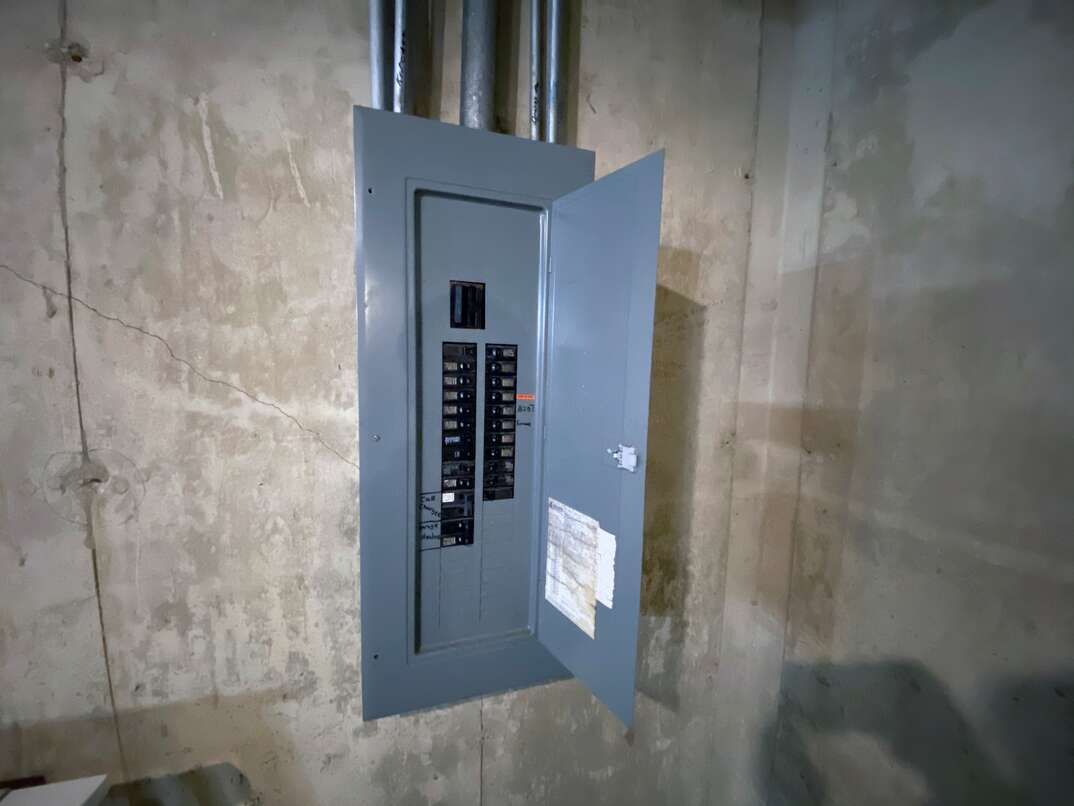What's the Difference Between a Circuit Breaker Panel and a Fuse Box?

Fuse boxes and circuit breaker panels distribute electricity through your home and protect your electrical equipment from power overloads.
However, there are differences between circuit breakers and fuse boxes, starting with how they interrupt the electrical flow.
What Is a Circuit Breaker Panel?
A circuit breaker panel, which typically resembles a flat gray box with switches inside, distributes electricity throughout your house. It’s usually found in a garage, basement or utility room, and it can be used to turn the power on and off to circuits in your home. If a power surge overloads the circuits, it cuts off the electricity automatically.
A fuse box also divides your home into various circuits, but instead of switches, it contains fuses, which consist of metal wires called filaments, enclosed in glass or ceramic-and-metal casings. If a circuit overloads, the filament melts, halting the flow of electricity.
What's the Difference Between a Circuit Breaker and a Fuse Box?
These electrical panels perform similar functions, channeling electricity through your home and protecting circuits from overload. The main difference between a circuit breaker and a fuse box is how they do that.
In a fuse box, an electrical overload causes a fuse’s filament to melt, cutting off the electricity. In a circuit breaker, an overload causes the breaker to trip, stopping the electrical flow. To restart the circuit with a circuit breaker, you simply have to flip a switch. If you have a fuse box, you’ll need to replace the fuse.
Fuse vs. Breaker: Advantages and Disadvantages
Although a fuse box can cut off your electricity quicker than a circuit breaker, it can be inconvenient to replace a fuse, especially in the dark. Circuit breaker panels can typically handle higher electrical loads, making them better for most modern homes.
Does My House Have Both?
Houses don’t usually have both types of electrical panels. Most modern homes have circuit breakers, while older homes typically have fuse boxes. If you have a fuse box, it probably doesn't comply with current electrical codes, and your electrician should upgrade it to a circuit breaker panel.
Elocal Editorial Content is for educational and entertainment purposes only. Editorial Content should not be used as a substitute for advice from a licensed professional in your state reviewing your issue. Systems, equipment, issues and circumstances vary. Follow the manufacturer's safety precautions. The opinions, beliefs and viewpoints expressed by the eLocal Editorial Team and other third-party content providers do not necessarily reflect the opinions, beliefs and viewpoints of eLocal or its affiliate companies. Use of the Blog is subject to the
Website Terms and Conditions.The eLocal Editorial Team operates independently of eLocal USA's marketing and sales decisions.



